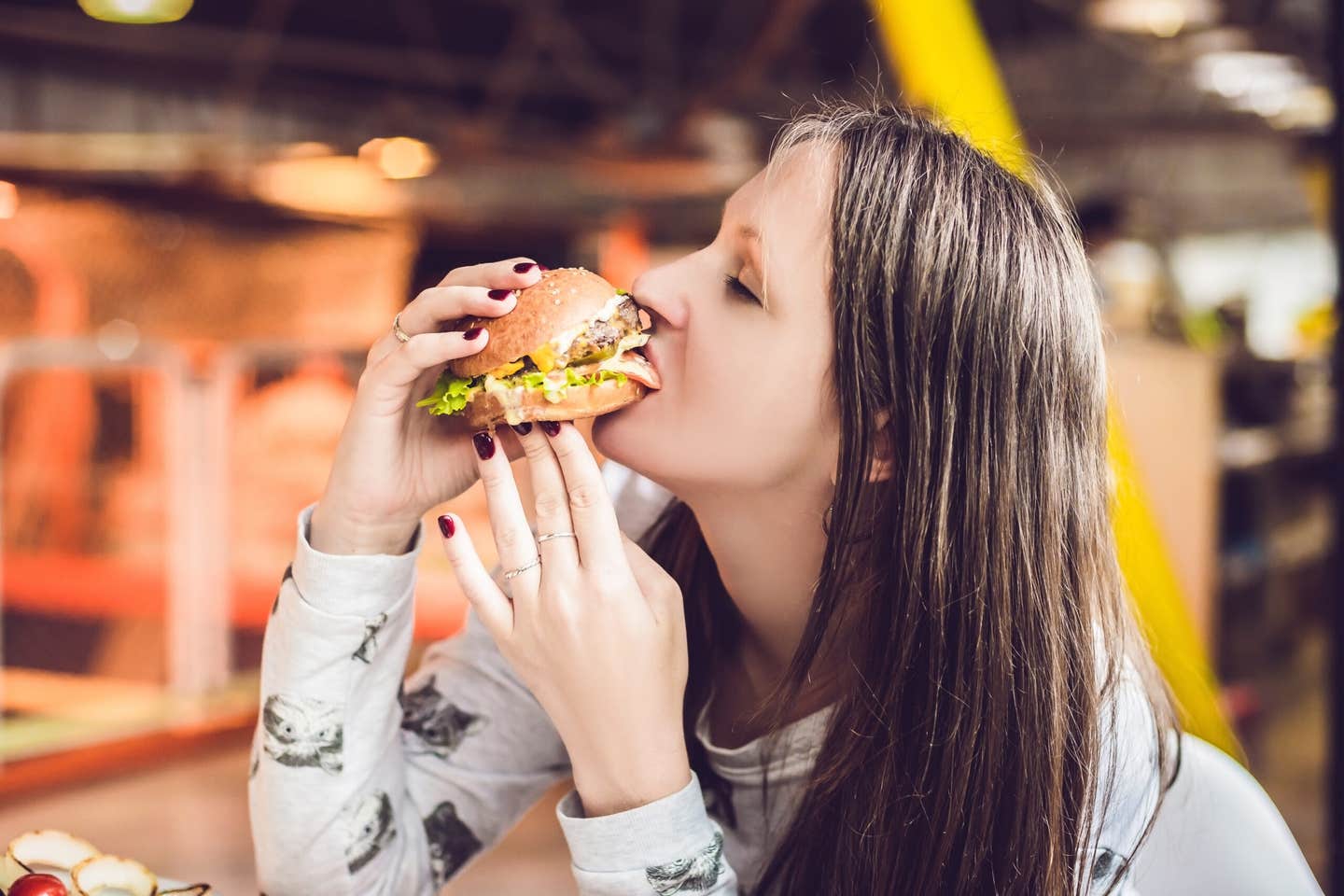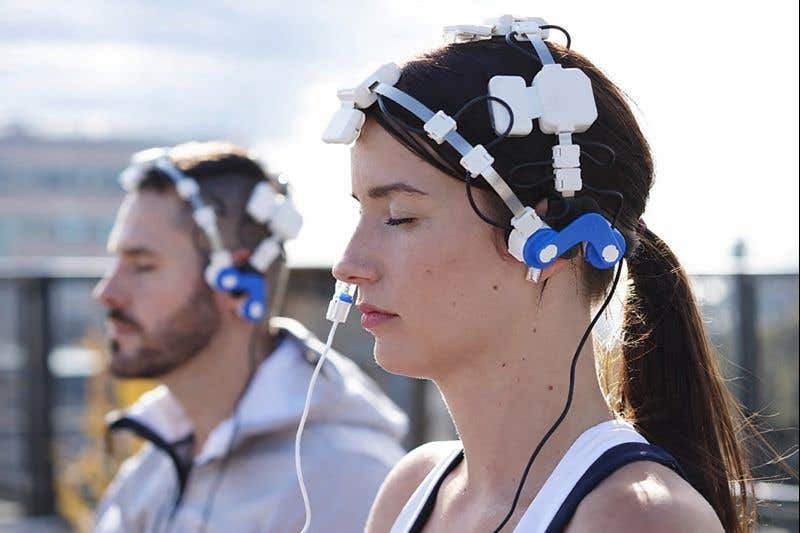Fatty foods help regulate your body, linking diet, sleep, and metabolism
Study shows the types of fats you eat influence how your body adapts to day length, connecting modern diets to disrupted sleep.

 Edited By: Joshua Shavit
Edited By: Joshua Shavit

Study finds fats in food help regulate your body’s seasonal clock, linking diet, sleep, and metabolism. (CREDIT: Shutterstock)
Scientists have long known that animals pace their sleep, hunger, and activity with the changing light of the seasons. But now, new research indicates there is a signal for those rhythms other than light. The kinds of fat you eat may also help set your body's internal clock — and when that ratio tips out of balance, so too can your metabolism.
Researchers at University of California, San Francisco and the University of Copenhagen have discovered that the composition of dietary fat influences the ability of animals to keep pace with changes in day length throughout the year. In research published in Science, they report that the mix of fats in the diet can help or hinder the brain's ability to pace daily activity in accordance with the natural day-night cycle.
When Diet Talks to the Brain
A protein called PER2 is at the center of this discovery that behaves like a timekeeper in nearly every cell. It controls sleep, appetite, and metabolism by undergoing phosphorylation—a small chemical tweak that acts like a light switch on the clock.
When mice were fed high-fat diets, this switch was activated so that they were unable to adjust to longer winter nights. Their brains were stuck in a "summer mode," as though insisting on refusing to accept that the days were now short. But when the animals were fed well-balanced diets with reduced fat, their internal clocks switched over nicely.
Daniel Levine, lead author and Ph.D., described how the impact hinged on the interaction between the fats and the PER2 protein in the hypothalamus, the brain area that controls circadian rhythm. "These types of fats seem to prevent mice from being able to sense the early nights of winter," he said.
The scientists also found that not all fats signal the same. The mice eating food rich in hydrogenated oils—used in much packaged snack food—had the hardest time adjusting to the experimental winter nights. The oils can convert natural polyunsaturated fats (PUFAs) into monounsaturated fats (MUFAs), interfering with the chemical signals PER2 relies on to keep track of time.
A Genetic Workaround
A few of the mice studied had a tiny genetic mutation in PER2 known as S662G. This caused phosphorylation to not occur at all. Interestingly, the mutant mice still coped with changes in day length as effectively even when they were placed on high-fat or hydrogenated diets. That mutation essentially protected their biological clocks from the disruptive effect of contemporary nutrition.
The researchers show this finding demonstrates how finely tuned the interaction between diet and circadian rhythm is. All that takes is a single change in molecules to determine whether your body is in summer or winter mode.
The Clock-Resetting Power of Fasting
The group also explored if fasting would influence the same molecular flip. When mice were subjected to short-term fasting, PER2 phosphorylation dropped. This rewound their circadian cycle and caused them to start activity earlier each day — like a person waking up spontaneously before sunrise.
That fasting response also affected the functioning of genes that control molecules built from polyunsaturated fats, such as found in fish, seeds, and nuts. Those foods appeared to directly feed into the brain's timekeeper, leading to the conclusion that food type and meal time work together to regulate biological clocks.
How Modern Life Throws Us Off
Human beings have adapted to live in accordance with the seasons. Both sun exposure and the level of fat in available food change slowly over the course of a year in the wild. During winter months, plants and animals contain more polyunsaturated fats, which keep cell membranes fluid in cold temperatures. During summer months, saturated and monounsaturated fats are dominant, as an adaptation to the foods naturally available.
In today's world, that cyclical rhythm has been lost to a large extent. Electric lighting blurs the demarcation between day and night. Processed foods—many of which contain hydrogenated oils—overwhelm our diets with fats that hardly differ from season to season.
The UCSF researchers caution that this perpetual discrepancy between the light and the nutrition may leave the human circadian clock forever desynchronized. "It raises the question of whether the same is occurring for humans munching on junk food," Levine said.
Co-author Louis Ptacek, M.D., a professor of neurology at UCSF, added that the findings are evolutionary. "If it's fall and there are still plenty of nuts and berries to eat, the bear might just as well keep eating as go on and hibernate, even as it senses the days are getting shorter," he said. "It would make sense that nutrition and day length would have something to do with seasonal behavior.".
Testing the Link
To verify their findings, researchers combined genetic, biochemical, and metabolic tests. They measured levels of PER2 and phosphorylated PER2 in brain tissue, tracked patterns of behavior, and contrasted the lipid composition of the hypothalamus. The findings indicated a clear trend: greater hydrogenated or monounsaturated fat diets optimized PER2 phosphorylation and interfered with seasonal adjustment.
By contrast, fasting or eating more richly nourished diets with natural polyunsaturated fats cut phosphorylation and re-established normal rhythms. The findings immediately connected molecular chemistry with behavior, establishing the first clear evidence that food and light signals converge on the same biological route.
Ancient Cues in a Modern World
In nature, such synchronization worked for mammals. Seasonal foods contained fats that served as mild cues, prompting animals to save energy in summer and then burn it in winter. These same cues also dictated how and when to mate, hibernate, or migrate.
Modern humans no longer get exposed to those seasonal cues, though. Artificial lighting and climate control make every day feel the same, and industrial food products maintain their ratio of fats year-round. The study suggests this detachment — what the researchers call "seasonal misalignment" — could be a contributor to sleep and metabolic disorders today.
Ptacek and co-senior author Ying-Hui Fu, Ph.D., who have studied PER2 since identifying its role in human sleep cycles two decades ago, believe the research opens new avenues for treating obesity, diabetes, and mood disorders. By realigning the signals our brains receive from food and light, they say, it might be possible to restore healthier circadian patterns.
The Modern Mismatch
The repercussions extend beyond the lab. If PER2 is the mediator between diet and circadian rhythm, then changing what and when you eat may realign the relationship. Hydrogenated fats and processed oils found in packaged snack foods, baked goods, and fried foods may trick your body into believing that it's the eternal summer of abundance. Natural fats from fish, seeds, and nuts may realign your clock to the season.
Levine joked that a single cookie might do more than satisfy a craving. “That one holiday cookie could turn into two cookies the next day, because you’ve now tricked your circadian clock into thinking it’s summer,” he said.
Practical Implications of the Research
These findings hold the promise to transform the way physicians and nutritionists approach chronic metabolic and sleep disorders. Adjusting the composition of dietary fats—favoring natural polyunsaturated sources over hydrogenated or processed ones—might enable people to fall in greater harmony with natural light rhythms. The research also suggests the value of scheduled eating or short periods of fasting to recalibrate the circadian clock.
At the societal level, the study points to the hidden cost of modern convenience. Unlimited light and unlimited calories may induce bodily confusion, causing obesity, insomnia, and related diseases.
Learning about the ancient dialogue between sunlight and fat can be an open door to future solutions to recover biological equilibrium in a 24-hour world.
Research findings are available online in the journal Science.
Related Stories
- Ultra-processed foods found to drive inflammation and obesity
- New study finds some processed fats may not harm heart health
- Switching from butter to plant oils improves health, study finds
Like these kind of feel good stories? Get The Brighter Side of News' newsletter.
Joseph Shavit
Writer, Editor-At-Large and Publisher
Joseph Shavit, based in Los Angeles, is a seasoned science journalist, editor and co-founder of The Brighter Side of News, where he transforms complex discoveries into clear, engaging stories for general readers. With vast experience at major media groups like Times Mirror and Tribune, he writes with both authority and curiosity. His writing focuses on space science, planetary science, quantum mechanics, geology. Known for linking breakthroughs to real-world markets, he highlights how research transitions into products and industries that shape daily life.



